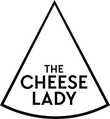Can you eat farmhouse and artisan cheese in pregnancy?
“Oh! I thought you weren’t allowed to have any cheese when you’re pregnant!?”, said my French friend to me inquisitively while I was ordering some aged Italian pecorino at a Farmers’ Market in Edinburgh.
I was perplexed by her statement. It was true I was pregnant but that didn’t mean I couldn’t consume any cheese I explained to her.
That got me thinking however, that there is indeed quite a lot of confusion around cheese consumption in pregnancy and it would be good to take a closer look at the subject in my blog and hopefully answer the age-old question – “To Eat or not eat cheese in pregnancy?”
To begin, let me point out that there is a vast difference between cheeses you would find in supermarkets and ones you would buy in a specialist cheese shop. The former would most likely be pasteurised, bland and boring dairy products, therefore I’m not going to talk about them here at all. I will be talking about the farmhouse and artisan (real) cheeses you would buy at a proper cheesemonger’s – most of them would be made from raw milk, come in a variety of textures and flavours with bags of character.

Firstly, let's look at why one should eat real cheese from a nutritional stand point.
We know that farmhouse and artisan cheeses are delicious and nourishing for any foodie’s soul, but there are also nutritional benefits. Bearing in mind that cheese is essentially a really concentrated form of milk, which is an extremely nutritious food itself and has been the source of essential nutrients for new-born mammal creatures for millennia.
Therefore, in cheese you are sure to find a good amount of protein and calcium, which our bodies are in constant need of. Also, it contains some fat, sugar, Vitamins A, B₁, B₂, B₃, B₆, B₁₂, D, E and K, phosphorus, sodium, potassium, magnesium, traces of zinc, iron, manganese and copper – the things that our bodies regularly require for normal operation.
“A 4-ounce [113g] piece of solid farmhouse cheese, for example, supplies more than half the adult nutritional requirements for protein, fat, calcium, and phosphorous as well as significant portions of vitamins A, B₂, and B₁₂. If you compare the nutritional content of a 3.5-ounce (100-gram) chunk of a hard, aged cheese such as Cheddar or Emmental to an equivalent amount of chicken eggs (two eggs are about 100 grams), the cheese contains about twice as much protein and one quarter of cholesterol”. (McCalman and Gibbons, 2009, p.20) Please note, that a substantial portion of the mentioned vitamins and minerals gets lost during cheese making if milk gets pasteurised.
But not only artisan and farmhouse cheeses are packed with bags of nutritional value, they also have a capability to make people function better physically and psychologically. Tyrosine, the amino acid found in cheese, is responsible for making us happy when we eat cheese and is a precursor to many hormones that are good for our bodies (such as levodopa and melanin). Some studies also show that “tyrosine is helpful during periods of stress, cold, fatigue, prolonged work, and sleep deprivation. It also appears to improve cognitive and physical performance, making people more alert…” (McCalman and Gibbons, 2009, p.26)

Ok, but what are the dangers of farmhouse and artisan cheeses?
The number one thing to keep in mind is that farmhouse and artisan cheeses are living, breathing and evolving things. Therefore, they may become contaminated with harmful bacteria at different stages of their existence, i.e. during
-
Milk collection
-
Cheese making
-
Post cheese making handling
The harmful bacterial pathogens that may be found in raw milk (therefore in cheese made from raw milk) are Salmonella, Listeria monocytogenes, Staphylococcus aureus, and E. coli.
Important: this does not mean that all raw milk cheeses are contaminated and/or automatically and absolutely dangerous.
There is, however, a possibility that if raw milk was mishandled during collection or cheese making the pathogens could develop. It is also possible that raw milk cheeses could go off if kept and handled incorrectly during maturation, transportation and retail. The chances of spoilage are higher for soft cheeses because “there are no barriers to prevent pathogen growth. In comparison, in aged hard cheeses, a combination of factors including pH, salt content, water activity (the amount of available moisture) interact to make these cheeses microbiologically safe” (Kindstedt, 2005, page 173).
Based on the above, I personally would recommend to avoid eating soft, semi-soft/semi-firm, and blue cheeses made from raw milk during pregnancy. Not only might they develop and contain dangerous pathogens but they are the ones that spoil more quickly once they are made and contain other types of moulds and yeasts that might be just too much for people with weaker immunity. Some names of the cheeses to avoid would be Camembert de Normandie, Brie de Meaux, Baron Bigod, Valençay, Epoisses, Vacherin Mont D’Or, Munster, Stichelton, Gorgonzola Dolce and Piccante.
Based on scientific research firm and hard cheeses, even the ones made from raw milk, are much safer (Kindstedt, 2005). They have less likelihood to develop harmful bacteria during cheese making if all hygiene procedures are followed, since raw milk contains natural inhibitors of harmful pathogens. Also, the way that their pH changes during maturation, their salt content and lack of residual moisture are all natural barriers against development of bad bacteria.
During my pregnancy I did enjoy a few firm and hard cheeses, even the raw milk ones, like Comté, Gruyère, and Vintage Gouda, because I believe that it's not the process of pasteurisation that makes cheese safe but lack of moisture, along with outstanding hygiene procedures that artisan Comté, Gruyère and Gouda producers follow.
When buying cheeses during pregnancy, please remember to use your good judgement – i.e. purchase them from a reputable cheesemonger with high hygiene standards and practices (the cheeses should not be exposed to the elements, they should be wrapped away after getting cut, the cutting equipment and surfaces should be clean with no cross-contamination).
As for the names of other cheeses that I think you could eat from the “firm and hard raw milk family”, they are: Beaufort, Appenzeller Extra, Manchego curado, Zamorano, Ossau Iraty, Parmigiano Reggiano, aged Pecorinos (like Fiore Sardo), aged Goudas, aged Cheddars, Berkswell, Lord of the Hundreds, Double Gloucester, Lancashire, Lincolnshire Poacher, to name a few. (Please do make sure to cut off the rinds on all of these cheeses as they are quite mouldy)
To sum up, real cheese is a tremendously nutritious food that should be included in any healthy diet. It is especially beneficial at times of increased physical stress, such as pregnancy. So, if you choose to include farmhouse and artisan cheeses in your pregnancy diet, remember that firm and hard varieties would be your safest choice.
The Cheese Lady x
Check out all the "safe in pregnancy" cheeses available on our website HERE and subscribe to our newsletter to get 10% your first online order HERE.
*This blog is an expression of my personal opinion based on my cheese literature and web research, as well as years of experience of working in the cheese industry.



